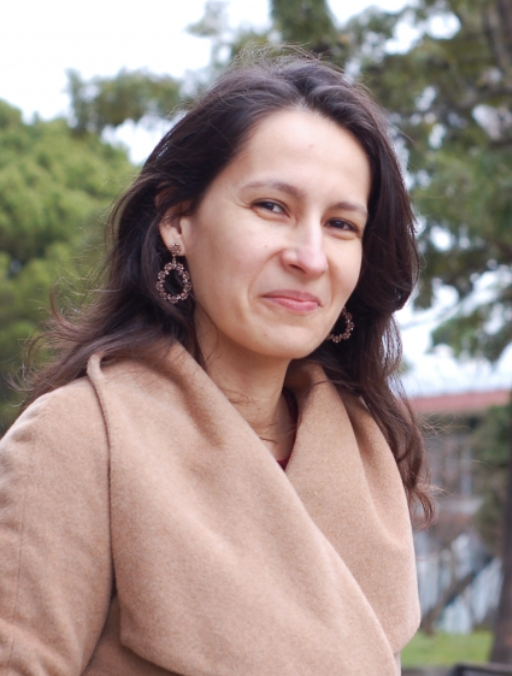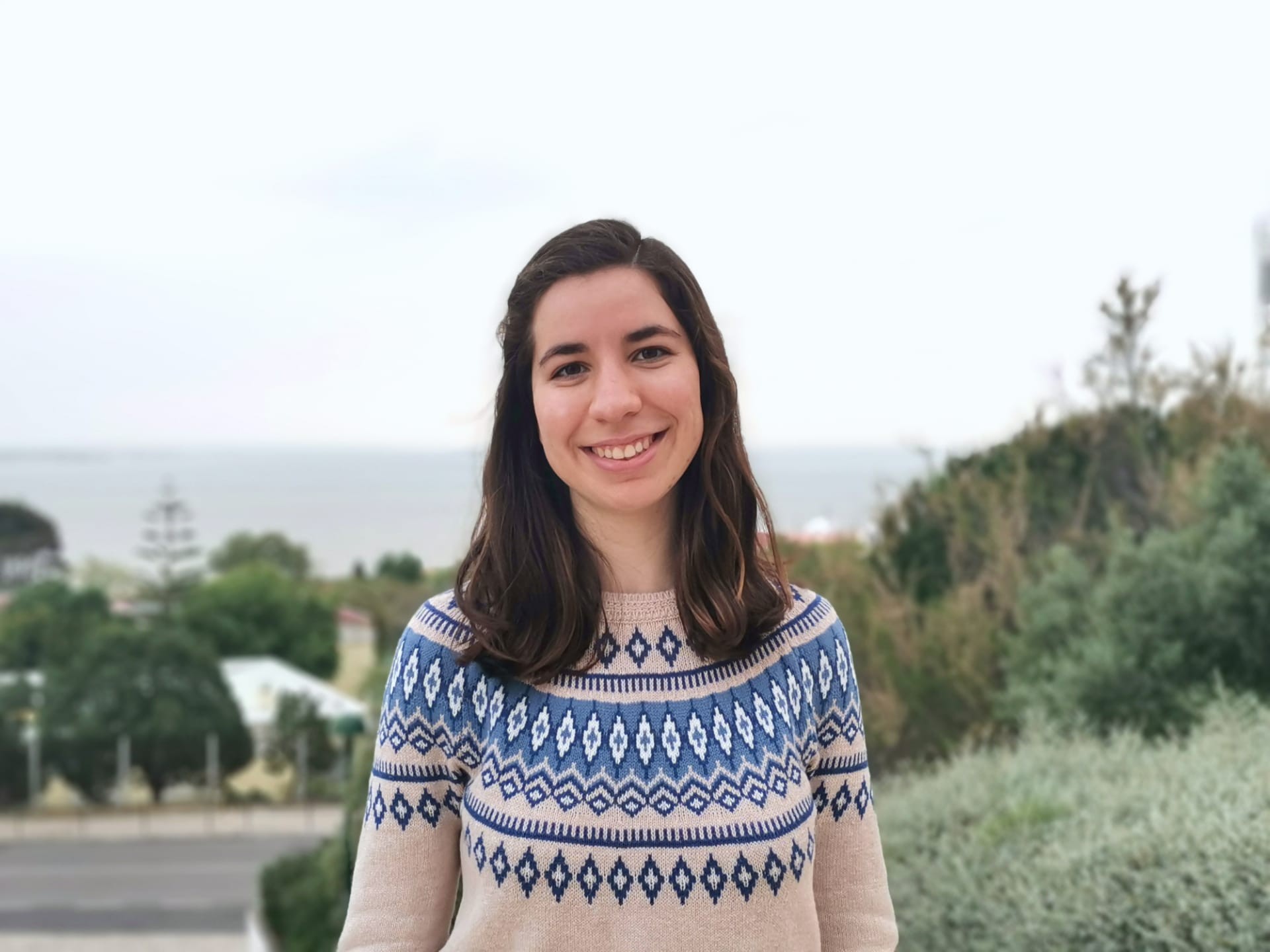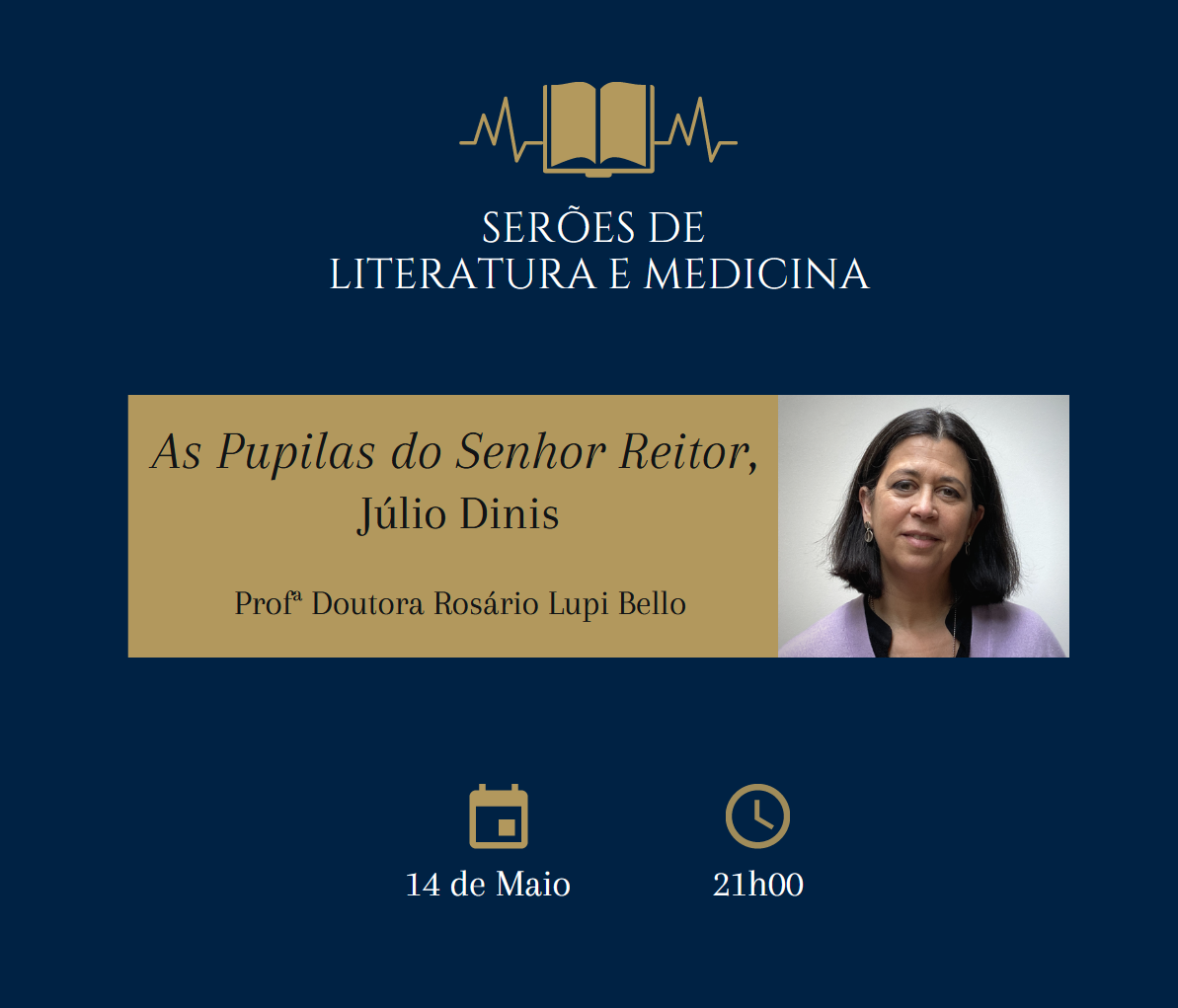At the Faculty of Medicine of the University of Lisbon, students and lecturers get together monthly to talk about Literature and Medicine. In this innovative initiative, great books have been the topic of conversation in the literary evenings, which look at the practice of Medicine with new eyes.

Organizers’ references:
Sofia Reimão: Professor at FMUL, Coordinator of the disciplinary area of Imageology, Neuroradiologist at CHLN, EP, holder of a Master Degree in Philosophy and of a Ph.D. in Medicine from FMUL.
Teresa Santana: Year 6 student of the Integrated Master Degree in Medicine at FMUL.


How did this initiative come about?
Sofia Reimão: Upon listening, in a Podcast, to Dr Tod Worner talking about the importance of literature in Medicine and how he taught a course on this topic, it seemed to me that we needed something like this. If we could not go to the United States to attend this course, I thought that we could organize something similar at FMUL and bring Dr Tod Worner to Lisbon, even if only in a virtual way.
I shared this idea with student Teresa Santana, who promptly and enthusiastically joined the organization and implementation of the initiative.
We were in the middle of the first wave of the pandemic and living in difficult times. We needed moments of hope that would make us see beyond the difficulties we were going through. And nothing better than literature to make us look further.
Thus, we had the idea to create a space that would combine Literature and Medicine, bringing together a broad academic community of students and lecturers from the Faculty of Medicine of the University of Lisbon, to reflect about great works of universal literature.
How does it work and what do you do in these evening gatherings?
The evening gatherings take place every month. There is a reference book (previously published in the programme) whose reading is proposed for each meeting. In the first part of the evenings, an introduction to the work is made by one or more invited speakers. The second part is for discussion and sharing among the participants.
Who can participate? And how?
The gatherings are intended primarily for the academic community of the Faculty of Medicine of the University of Lisbon, both students and lecturers. However, they are open to anyone. To participate, people simply access the link on the Faculty's website, which automatically refers to the (virtual) meeting, with no prior registration required.
What is the importance of these evenings?
We live in unexpectedly difficult and particularly challenging times. As doctors, lecturers and medical students, we are faced with many questions, feeling in concrete the limitations and fragility of human beings. This made us look at existence/life from new perspectives. In this context, numerous challenges to our vocation have emerged which, like no other, “touch” the depth of the human.
In view of the harshness of certain challenges and the hopelessness generated by some scenarios, literature offers us new hope and a privileged access to human experience.
In a particularly technological age, like now, in which Medicine is so often reduced to its technical component, the Humanities and, in particular, literature, can help us to reflect on the human side of this science that is also an art.
Are these evenings important for the students' training/career?
Although the literature we deal with in these gatherings is not exactly medical literature, in the strict sense of the term, students have a lot to gain from participating in these meetings, not only for their training as future doctors, but mainly as persons. Of course, both areas are interconnected.
In this regard, the words of Professor João Lobo Antunes seem to be quite enlightening when he says that “Medicine has a different twist when it is practiced by educated doctors, not only because they more easily apprehend the complexity of what it is to be sick (... ), but also because they develop skills such as empathy, curiosity, sense of humour, imagination, and availability, which allow them to better enjoy the profession they have embraced.”
If you could only choose one book, which one would it be?
Teresa Santana: Choosing just one book is a difficult and, in a way, impossible task. It is good to remember, however, that the richness of literature also resides in its diversity. However, I would say that good books are those that have the capacity to read us, to use the expression of Lionel Trilling (“real books read us”). They are also usually those who invite us to re-read them and from which it seems that we can always get something new.
That said, my choice would be “The Little Prince”, by Antoine de Saint-Exupéry, which perfectly illustrates the old adage that great books are not always big books. If I could still add an author, it would be Sophia de Mello Breyner Andresen, with her transparent, intimate and disarming writing, which always remains current.
Sofia Reimão: I can't select a book. It is, in fact, an impossible task. I could only choose a library, with the books that accompanied me at different times, moments, events.
The next evenings of Literature and Medicine will take place on May 14, watch the event through the link.

Leonel Gomes
Editorial Team








